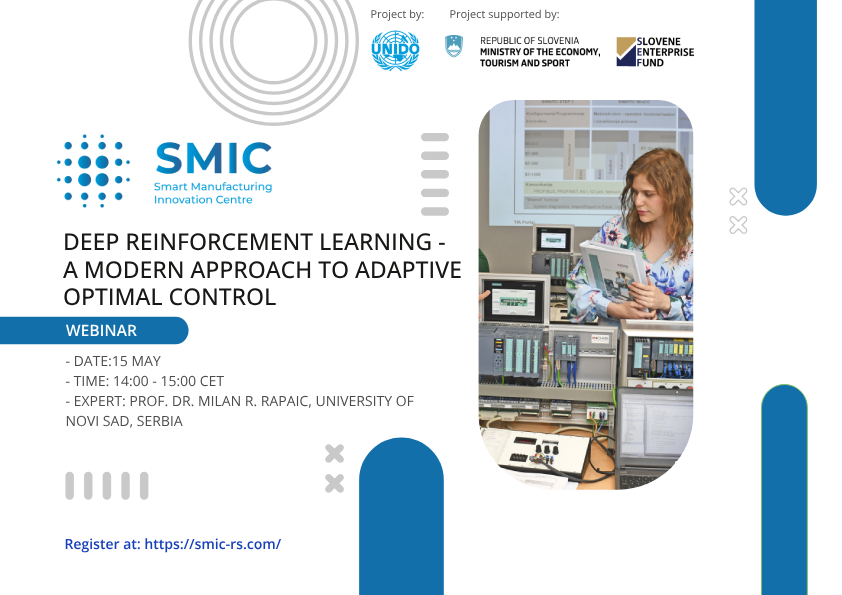Date: 15 May
Time: 14:00 – 15:00 CET
Target participants:
- Researchers and Academics: Professionals involved in the fields of machine learning, artificial intelligence, control theory, and robotics who are interested in exploring the latest advancements in deep reinforcement learning for adaptive optimal control.
- Practitioners: Engineers, data scientists, and practitioners working in industries such as robotics, autonomous systems, manufacturing, finance, or any field that involves optimization and control processes. They seek practical applications and insights into implementing deep reinforcement learning techniques for adaptive optimal control in real-world scenarios.
- Students: Undergraduate and graduate students studying computer science, engineering, mathematics, or related disciplines, who are interested in gaining a deeper understanding of reinforcement learning techniques and their applications in control systems.
- Entrepreneurs and Innovators: Individuals interested in exploring cutting-edge technologies and their potential applications for innovation and entrepreneurship, particularly in areas where adaptive optimal control plays a crucial role, such as autonomous vehicles, smart grids, or healthcare.
- Decision-makers: Managers, executives, and policymakers who want to stay informed about emerging technologies and their implications for various industries, including the potential benefits and challenges associated with adopting deep reinforcement learning for adaptive optimal control.
Description: Deep Reinforcement Learning is an application of Deep Learning techniques to sequential decision-making problems. Sequential decision making is a synonym for control. When there is a clear gain to be maximized, or loss to be minimized — as is most often the case — we are talking about optimal control. When the process to be controller is unknown, uncertain, and/or changing in time, the controller need not only adjust the control signal, but it must also adapt the control law itself! In this case we are talking about adaptive control. There are many forms of adaptive control. In a very important class of problems, we are simultaneously adapting and optimizing, giving rise to the field of adaptive optimal control. Off course, adaptation is just another word for learning, and Reinforcement Learning is a powerful technique for tackling this kind of profoundly complex problems. Unfortunately, many sources in both machine learning and control fail to explicitly recognize deep connections between Reinforcement Learning and adaptive optimal control. Yet there is lot to be gained from recognizing and developing this intimate connection. The goal of this lecture is to state both classes of problems and to highlight the fact that they are, in essence, one and the same. We also stress differences between the two, often steaming from cultural differences between practitioners (control engineers vs computer scientists) then from the objective discrepancies of methodologies.
Expert: Prof. Dr. Milan R. Rapaić – Faculty of Technical Sciences, Novi Sad, Serbia. Prof. Rapaić is interested in decision and control theory, optimization, intelligent and adaptive systems. he has worked on numerous commercial and academic projects related to development of intelligent decision-support systems. His experience also include contributions in the areas of fractional order systems, infinite-dimensional dynamical systems, and global and evolutionary optimization, among other topics. He has authored 40 SCI indexed journal papers, 1 international patent, 3 books, and several chapter in international monographs.
Registration link: https://events.teams.microsoft.com/event/ddbaaa29-e451-4354-ae87-693db58a1e84@426a4931-ec5c-4fcb-9d10-3363ebdf9280

